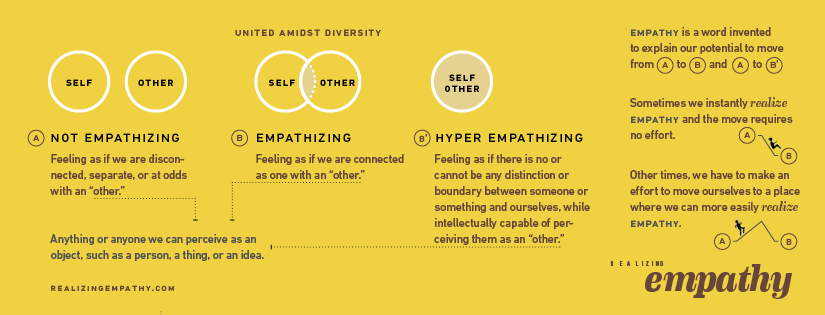A founder
was feeling burnt-out.
“When was your last vacation?” I asked.
He couldn’t remember.
“I can’t take one.
My employees are working.
I should be there to help them.” he added.
“What emotions do you experience
when you think of taking a vacation?” I asked.
“…Guilt.” he answered.
“Let that sink in.
That’s significant.” I remarked.
He first looked puzzled,
but soon his eyes widened
and he blurted out
“Oh!
I see!
We should all take a vacation!”
…
When we feel responsible for “others,”
it’s not unnatural
to feel concern
for their suffering.
With sufficient concern
it’s also not unnatural,
to want
to help.
This is known
as compassion.
Despite best intentions,
however,
the impact of compassion
can also make things worse for others,
and burn us out, as well.
Sometimes,
we need to tame our compassion
to put aside our need to help “others,”
and instead help our “self”
through a vulnerably creative process.
A process
by which we can realize empathy
unexpectedly,
and let emerge
a connected entity
“we”
between self and other.
A process
by which we can learn
a new choice of sight,
that synthesizes
an unpredicted form of help
that helps not other
not self,
but us.
